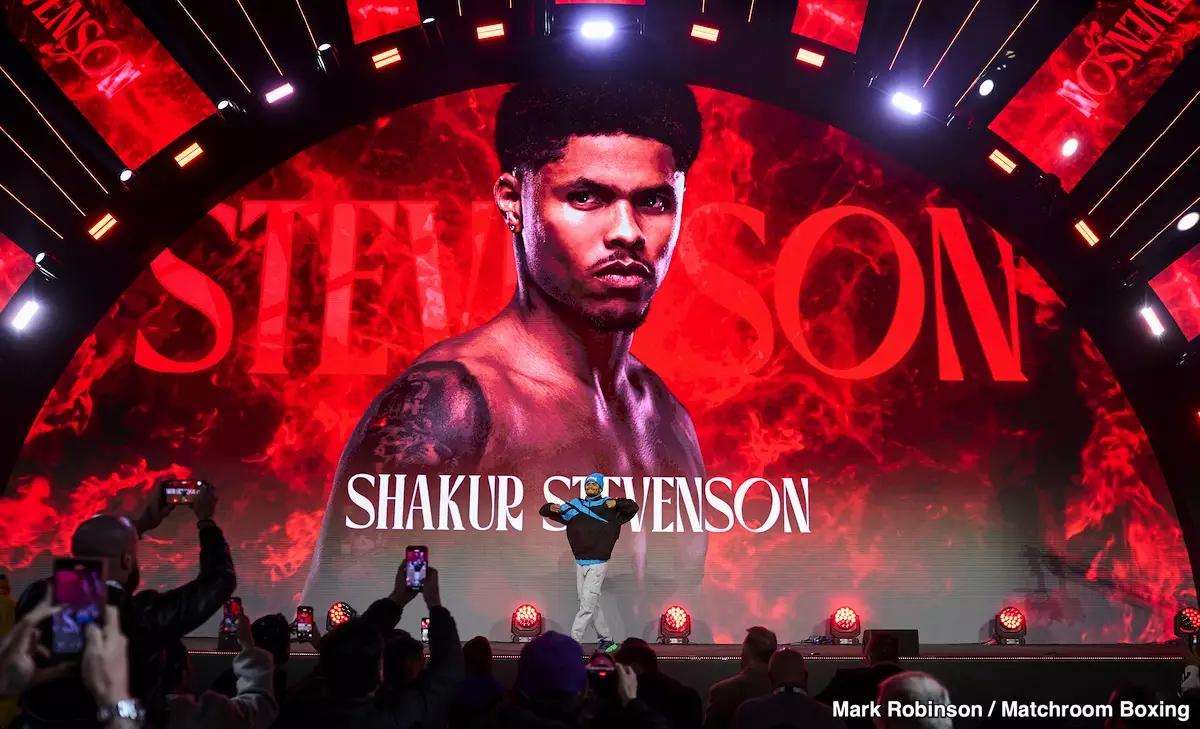In the lead-up to his highly anticipated bout on February 22nd, WBC lightweight champion Shakur Stevenson finds himself preparing to face an underwhelming adversary—Josh Padley—a fighter he admits to knowing little about. This matchup, set against the backdrop of Riyadh, Saudi Arabia, raises eyebrows not just for its timing, but also for the lack of intrigue surrounding Padley, who boasts a record of 15 wins and only 4 knockouts. Stevenson’s promoter, Eddie Hearn, seemingly selected Padley as the lesser of two evils, having initially considered a far more dangerous opponent in Jadier Herrera, whose record of 16-0 with 14 KOs speaks to his knockout power.
The Dynamics of Replacement Opponents
The choice of Padley as a replacement opponent prompts questions about the integrity of competitive boxing. While fighters often face unforeseen challenges that require mid-fight adjustments, Stevenson’s situation seems steeped in strategic maneuvering. Hearn’s unspoken fears about Stevenson’s potential losses against tougher competition lead him to choose a fighter who is, in many ways, seen as inadequate for this level of competition. By prioritizing Stevenson’s safety, a shadow is cast over the integrity of the sport. Boxing fans expect exciting matchups; they want to see champions tested against worthy opponents, not simply padded records against lesser fighters.
Stevenson exudes confidence, despite his limited knowledge of Padley. In an interview with Fight Hub TV, he acknowledged that he has only watched a single round of Padley’s fights but is determined to put forth his best effort regardless. This attitude reinforces a broader narrative: that Stevenson is not a fighter willing to settle for mediocrity. His statements reflect an understanding of the stakes involved; he knows that Padley will view this encounter as the pinnacle of his career. Consequently, Stevenson recognizes the need to maintain his reputation while navigating this lackluster bout.
Looking beyond this fight, Stevenson is eyeing a much more significant challenger: Gervonta Davis. Hearn’s desire to set up this mega-bout as Stevenson’s next fight underscores the imperative of keeping Stevenson undefeated and marketable. However, the question looms larger—how many easy matches can one champion afford to take before fans lose interest, and the pressure mounts to face legitimate threats? If Stevenson continues down a path filled with untested opponents, he risks being labeled a “hype job,” a fighter whose reputation might not match the skill and talent he possesses.
Ultimately, Stevenson’s bout against Padley encapsulates a dichotomy of sorts: the sharp contrast between ambition and the pragmatic realities of sport management. While Stevenson prepares for a fight that appears more like a formality than a true contest, his eyes remain fixed on greater glory and tougher competition in the near future, leaving many to ponder if he can transform these aspirations into reality without sacrificing the integrity of his champion status.

